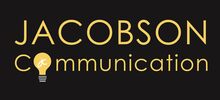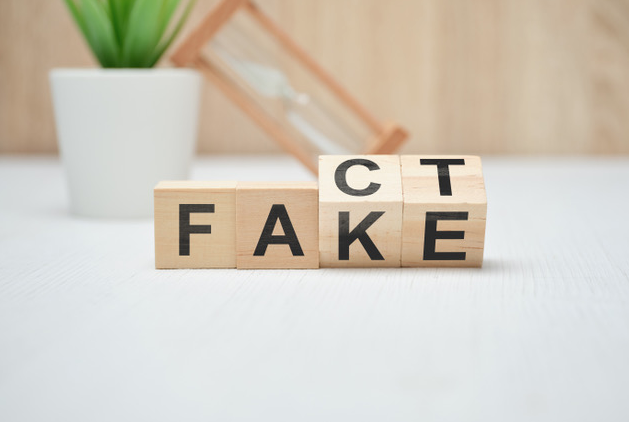|
Hiring a PR firm is a big step for any new or growing brand. If you've reached this point, congratulations, you’ve gotten farther than a lot of other brands ever have. Here are seven common myths to avoid when considering hiring a PR firm. 1. The Best PR Firms Are Really Big Choosing a big PR firm that works with big clients can be a bad choice for new and emerging brands for several reasons. Big PR firms are expensive for cost-conscious brands. Unless they have a “small brand” department big PR firms are mainly focused on their big, name-brand clients, because they look good, and they bring in most of the money. Most big PR firms don’t specialize in the nuances of startups. While they may have fancy reports and a fleet of underlings to meet with you regularly, big PR firms don’t usually understand the specific needs of budding entrepreneurship associated with startups. You’re better off looking for PR firms that specialize in, and have results for companies of a similar size and focus to yours. 2. Paid Celebrity Promotion Works When You Pay Enough
The PR needs of celebrities and established brands have little in common with the PR needs of startups. Endorsements, damage control, product launches within an established brand, and ongoing brand maintenance should be your brand's primary focus. Startups usually need PR that introduces them to the world and establishes them as a thought leader in their industry. Popular celebrities may seem cool, but the PR strategies that make them successful have little in common with the PR strategies that make new startups successful. Also consider that celebrities and big brands spend millions annually on communications, marketing infrastructure, market research, endorsements, and public relations. The work of their PR firm only plays a small part in their success. 3. A Good PR Firm Should Work Without Much Input from Me PR is not a one-size-fits-all solution to getting your startup noticed. Each startup is unique, and a good PR firm will need to spend time with you and get to know your brand, your goals, your industry, and more, in order to identify what makes you special and help you stand out from the competition. Expect to meet with your PR firm regularly and don’t be surprised when they ask questions about why your startup exists, what problem you solve, and how you’re different than others. 4. My Startup Is Too Secret To Talk About With a PR Firm PR firms need to know what your company does, how it does it, why it exists, and how it’s better than the competition. While you may not need to disclose each of the secret sauce ingredients directly, your PR firm needs to be able to talk with reporters and make a solid case as to why your product is better than the competition. Warning: Reporters can see through vague marketing speak, so get specific. If your startup has a secret product or solution still in development, and not yet ready to be made public, be sure to tell your PR firm when it can be made public. 5. My PR Contract Should Be Cheap Because I’m a Startup/New Brand Public relations is often the first thing people see when they meet your startup. While you can save money on things like office supplies and company lunches, public relations, can be an embarrassing place to scrimp because it’s so very “public.” It’s like wearing a ragged dirty shirt to a demo pitch. Sure you can do it, but it’s not a good idea. Think of a PR firm as you would a dentist, a lawyer, an accountant. You want good results, which come from experience, intelligence, and the ability to get the job done right. Price is a very small part of what is truly important when hiring a PR firm. According to one article: “Retainer fees for startups tend to range between $5,000 and $10,000.” 6. I Should Only Pay for Placements Many startups hesitate to pay for public relations work, as it is not a guarantee of media placements. As a result, some startups consider a pay-to-play option. Pay-to-play means a firm only gets paid for the media placements they get a client. Most publications frown on the practice. Some publications will even blacklist PR people who get paid per story, so don’t ask your PR firm to do it. If you need eyeballs, consider straight-up advertising or paid placements. The downside; the audience will know you paid to get the story and control the message, so it won’t feel as genuine as real PR. 7. The Intern Can Do It Don’t ask a fish to climb a ladder and don’t ask an intern to pitch your startup. Interns can be great for getting coffee and some even have the capacity to contribute to well-envisioned, well-guided, well-monitored campaigns. You may find an intern that is so good they eventually become a valued employee. But would you really trust an intern to be your company’s sole ambassador, pitching your startup to Fortune, or TechCrunch, or Gizmodo? Keep in mind, most reporters get hundreds of pitches a day, the odds are slim that your intern knows who to approach a reporter and what to say to make put your company in the best light possible. The Bottom Line Finding a good PR firm is an important step in your brand’s growth. With a little planning, and a willingness to work together, your startup will be well on its way to better publicity. By Jennifer L. Jacobson, Founder of Jacobson Communication Jennifer L. Jacobson is a PR professional and communications strategist specializing in life-changing PR engagement for startups, nonprofits, creative companies, and theme parks. For clients who require strategy, creative services, and advisement, Jennifer draws on her two decades experience as an entrepreneur, creator, author, and musician. Jennifer's clients have been on The View, The Today Show, in TIME magazine's "Best Sites of the Year," FastCompany's "Best Nonprofits," on the front page of USA Today, Popular Science, The New York Times, the Today show, PBS Frontline, and thousands more. Comments are closed.
|
About the AuthorJennifer is a storyteller who connects big ideas with audiences. She specializes in public relations, brand development, and creative services for startups, theme parks, musicians, authors, nonprofits, and more. Archives
December 2025
|
About Jacobson Communication
|
Jacobson Communication specializes in delivering game-changing PR and earned media for extraordinary clients with a story to share.
I work with nonprofits, outdoor brands, tech companies, entertainment brands, startups, theme parks, musicians, authors, nonprofits, special causes and more. From at-scale media relations, and brand engagement, to positive social change, you'll be surprised what better communications can do for you. The Generative AI Skeptic
|
Land AcknowledgementAcknowledgement to the southern Lushootseed-speaking Coast Salish Indigenous Peoples whose land I live and work on.
This land also includes the traditional land and waterways of the first people of Seattle, the Duwamish People of past and present. It is with honor and gratitude to the land itself, the plants, animals, and the Duwamish Tribe that I practice my work. This land is also on and adjacent to the traditional homelands and waterways of the Puyallup Tribe. The Puyallup people have lived on and stewarded these lands since the beginning of time and continue to do so today. I recognize that this land acknowledgement is one small step toward true allyship, and I commit to uplifting the voices, experiences, and histories of the Indigenous people of this land and beyond. To learn more about the Puyallup Tribal Language program, visit: https://www.puyalluptriballanguage.org Personal StatementIt is my hope that we all deepen our understanding, awareness, and relationship to where we live in the world, and that we, individually and as a group, do our part to heal the wounds caused by genocide, enslavement, displacement, and other such atrocities, many of which have been intentionally carried forward into our present day and built into modern systems of power. Here is a list of books that might help you on your way to decolonizing the mind.
Are You Ready to Tell Your Story?If so, have a cookie. Click below.
Not Yet Ready to Tell Your Story?That's okay too. Pet the cat.
Copyright 2026 Jacobson Communication
Jennifer Jacobson AKA The Feral PR Consultant Please know that my thoughts are my own, and not necessarily those of my clients or those I work or have worked with. May your thoughts also be your own. Stay feral! |






